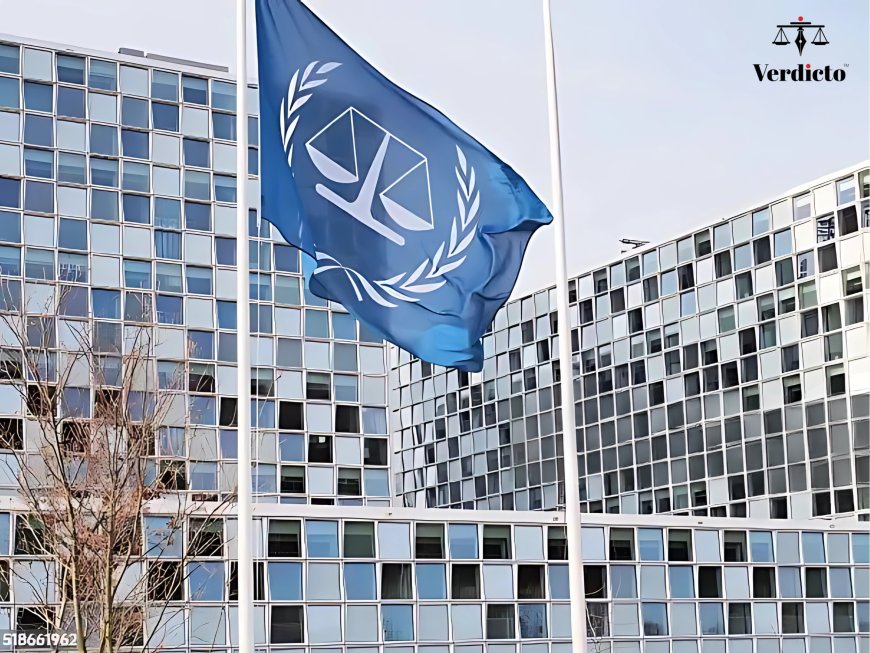Is the International Criminal Court really making a difference?
Is the International Criminal Court (ICC) really making a difference? From convicting war criminals to tackling modern-day atrocities, the ICC fights for global justice. But powerful nations remain outside its reach, and some major cases have fallen apart. So, is justice truly being served? We break it down — key cases, current challenges, and why the ICC still matters.

The International Criminal Court (ICC), which holds people accountable for the worst atrocities known to man, is a turning point in the worldwide quest for justice. Since its establishment at the beginning of the twenty-first century, it has come to represent the global community's resolve to eradicate impunity for crimes against humanity, war crimes, and genocide. The Rome Statute, which was ratified by 60 nations and adopted in 1998, created the ICC and went into effect on July 1, 2002. The Hague, Netherlands, is home to its main office. In order to look into, punish, and try people and not states who are suspected of committing the most heinous international crimes, such as crimes against humanity, war crimes, and genocide, the court was established as a permanent, independent judicial entity.
An important void in international law was filled by the establishment of the ICC. Before its creation, there was no permanent organisation to guarantee accountability for such atrocities on a worldwide scale; instead, ad hoc tribunals (like those for Rwanda and the former Yugoslavia) were established for particular conflicts. The ICC was intended to be a court of last resort, only getting involved when national courts are unable or unwilling to bring criminal charges against violators. This makes it impossible for offenders to evade prosecution just because their nation of origin does nothing.
Since its inception, the ICC has handled several high-profile cases, setting important
precedents for international criminal law:
Thomas Lubanga Dyilo: The ICC’s first conviction in 2012, Lubanga, a Congolese warlord, was found guilty of recruiting and using child soldiers.This case established the precedent that using children in armed conflict is a grave international crime.
Germain Katanga: Convicted in 2014 for war crimes and crimes against humanity, including pillage and sexual slavery during an attack in the Democratic Republic of Congo. The case highlighted the ICC’s focus on crimes involving sexual and gender-based violence.
Jean-Pierre Bemba: Initially convicted in 2016 for war crimes and crimes against humanity in the Central African Republic, Bemba’s conviction was later overturned on appeal, illustrating the complexities and challenges of international criminal proceedings.
Dominic Ongwen: A former child soldier turned commander in Uganda’s Lord’s Resistance Army, Ongwen was convicted in 2021 of over 60 counts of war crimes and crimes against humanity, including pillage, murder, and sexual slavery.
Recent Developments
The ICC is still working on recent conflicts. The ICC prosecutor requested arrest warrants for Hamas officials in May 2024, claiming that the group had committed crimes against humanity and war crimes during the Israel-Gaza War. This illustrates the court's continued applicability in handling contemporary international crises and its readiness to look into all parties, irrespective of political sensitivities. In order to improve knowledge of evidence collection, victim protection and legal procedures, the ICC also works with groups such as the United Nations Latin American Institute for the Prevention of Crime (ILANUD).
Relevance of the ICC Today
The ICC serves as a deterrent against the worst crimes, sending a clear message that no one is above the law. Its work brings hope for justice to victims in regions where national courts are either unable or unwilling to act. The court’s focus on crimes such as the use of child soldiers, sexual violence, and mass atrocities resonates with universal human rights values. The ICC provides a living laboratory for the study of international criminal law, offering rich jurisprudence on topics like command responsibility, the definition of crimes, and victim participation. Cases like Lubanga and Katanga set important legal precedents, especially regarding the prosecution of sexual and gender based crimes and the use of child soldiers. The court’s evolving case law and procedural innovations are essential study material for aspiring international lawyers.
Despite its achievements, the ICC faces challenges:
The ICC can only prosecute crimes committed after July 1, 2002, and only in states that have ratified the Rome Statute or by their nationals. Key countries like the United States, China, and Russia have not joined the ICC, limiting its global reach and enforcement power. Some high profile cases have collapsed due to insufficient evidence or procedural issues, raising concerns about the effectiveness of investigations and prosecutions.
Key Examples for Study
|
Case/Person |
Crime(s) Prosecuted |
Outcome |
Significance |
|
Thomas Lubanga |
Use of child soldiers |
Convicted (2012) |
First ICC conviction, child soldiers |
|
Germain Katanga |
War crimes, crimes against humanity |
Convicted (2014) |
Focus on pillage and sexual violence |
|
Jean-Pierre Bemba |
War crimes, crimes against humanity |
Convicted (2016), acquitted (2018) |
Command responsibility, appeals process |
|
Dominic Ongwen |
War crimes, crimes against humanity |
Convicted (2021) |
Victim participation, sexual violence |
|
Laurent Gbagbo |
Crimes against humanity |
Acquitted (2019) |
Limits of evidence, highprofile acquittal |
|
Hamas Leaders (2024) |
War crimes, crimes against humanity |
Arrest warrants sought (pending) |
Ongoing relevance, contemporary conflict |
The ICC remains a cornerstone of international justice, striving to end impunity for the world’s most serious crimes. While it faces significant challenges, its existence and ongoing work underscore the global community’s commitment to accountability and the rule of law. The ICC’s cases and evolving jurisprudence offer critical insights into the pursuit of justice on a global scale.







